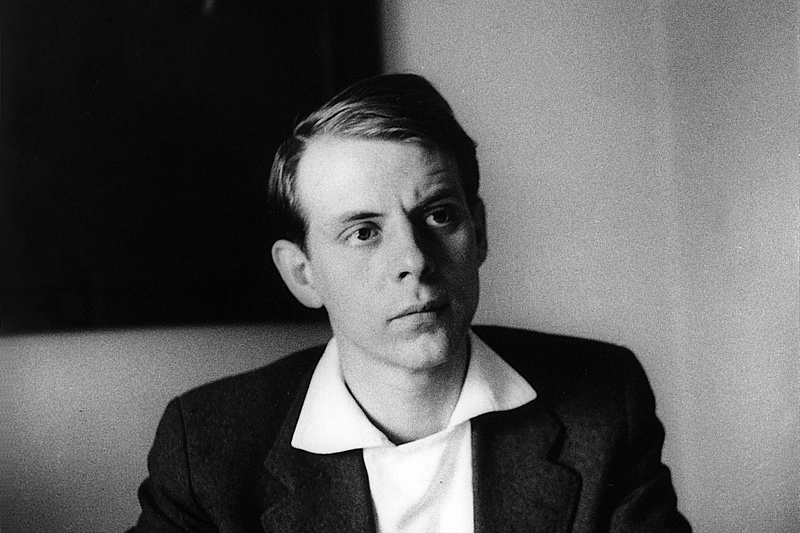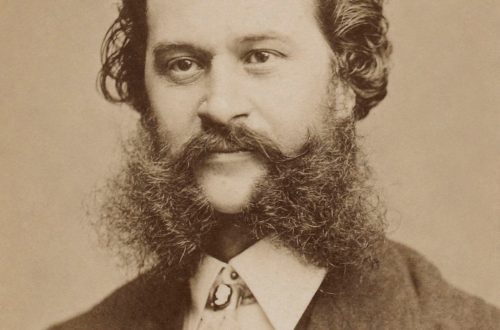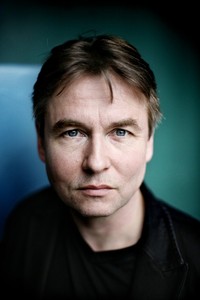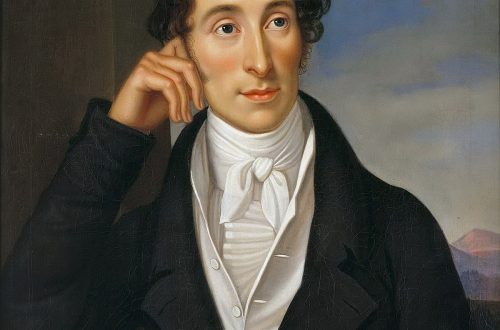
Karlheinz Stockhausen |
Karlheinz Stockhausen
German composer, musical theorist and thinker, one of the largest representatives of the post-war musical avant-garde. Born in 1928 in the town of Medrat near Cologne. In 1947-51 he studied at the Cologne Higher School of Music. He started composing in 1950 and became an active participant in the Darmstadt International Summer Courses for New Music (where he later taught for many years). In 1952-53 he studied in Paris with Messiaen and worked in the Studio “concrete music” of Pierre Schaeffer. In 1953, he began working at the West German Radio’s Electronic Music Studio in Cologne (later leading it from 1963-73). In 1954-59 he was one of the editors of the music magazine “Row” (Die Reihe), dedicated to issues of contemporary music. In 1963 he founded the Cologne Courses for New Music and until 1968 served as their artistic director. In 1970-77 he was professor of composition at the Cologne Higher School of Music.
In 1969 he founded his own “Stockhausen Publishing House” (Stockhausen Verlag), where he published all his new scores, as well as books, records, booklets, brochures and programs. At the 1970 Osaka World’s Fair, where Stockhausen represented West Germany, a special ball-shaped pavilion was built for his Expo electro-acoustic project. Since the 1970s, he led a reclusive life surrounded by family and congenial musicians in the town of Kürten. He performed as a performer of his own compositions – both with symphony orchestras and with his own “family” team. He wrote and published essays on music, collected under the general title “Texts” (in 10 volumes). Since 1998, the International Courses in Composition and Interpretation of Stockhausen’s Music have been held every summer in Kürten. The composer died on December 5, 2007 in Kürten. One of the city squares is named after him.
Stockhausen went through several turns in his work. In the early 1950s, he turned to serialism and pointillism. Since the mid-1950s – to electronic and “spatial” music. One of his highest achievements of this period was “Groups” (1957) for three symphony orchestras. Then he began to develop the “form of moments” (Momentform) – a kind of “open form” (which Boulez called aleatoric). If in the 1950s – early 1960s Stockhausen’s work developed in the spirit of the scientific and technological progressism of that era, then since the mid-1960s it has been changing under the influence of esoteric sentiments. The composer devotes himself to “intuitive” and “universal” music, where he strives to combine musical and spiritual principles. His time-consuming compositions combine the properties of ritual and performance, and “Mantra” for two pianos (1970) is built on the principle of a “universal formula”.
The grandiose opera cycle “Light. Seven days of the week” on the symbolic-cosmogonic plot, which the author created from 1977 to 2003. The total duration of the cycle of seven operas (each with the names of each day of the week – referring us to the image of the seven days of Creation) takes almost 30 hours and exceeds Wagner’s Der Ring des Nibelungen. The last, unfinished creative project of Stockhausen was “Sound. 24 hours of the day ”(2004-07) – 24 compositions, each of which must be performed at one of the 24 hours of the day. Another important genre of Stockhausen was his piano compositions, which he called “piano pieces” (Klavierstücke). 19 works under this title, created from 1952 to 2003, reflect all the main periods of the composer’s work.
In 1974, Stockhausen became a Commander of the Order of Merit of the Federal Republic of Germany, then Commander of the Order of Arts and Letters (France, 1985), laureate of the Ernst von Siemens Music Prize (1986), honorary doctor of the Free University of Berlin (1996), a member of a number of foreign academies. In 1990, Stockhausen came to the USSR with his musicians and acoustic equipment as part of the anniversary music festival for the 40th anniversary of the FRG.
Source: meloman.ru





